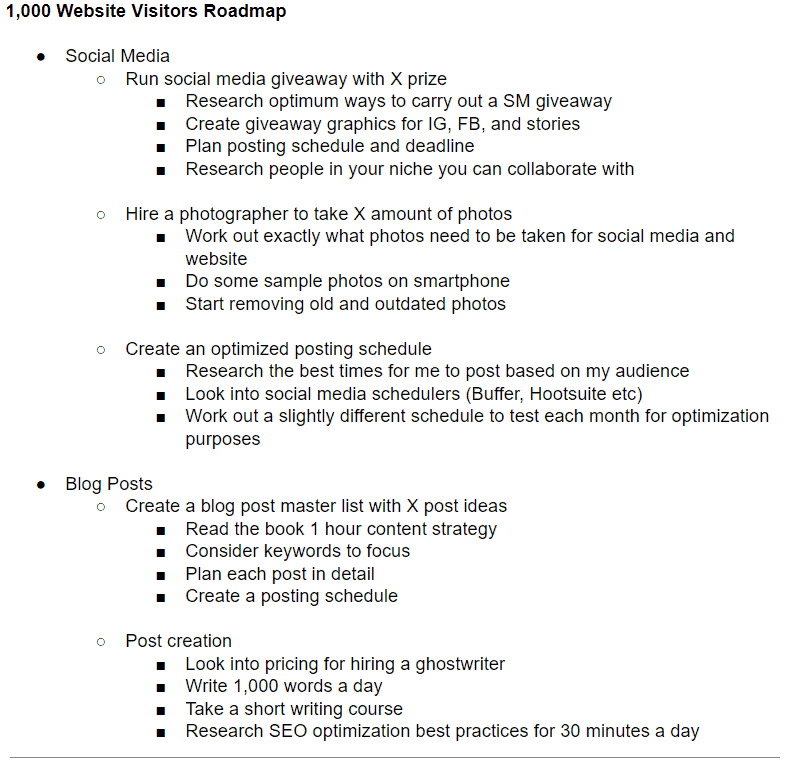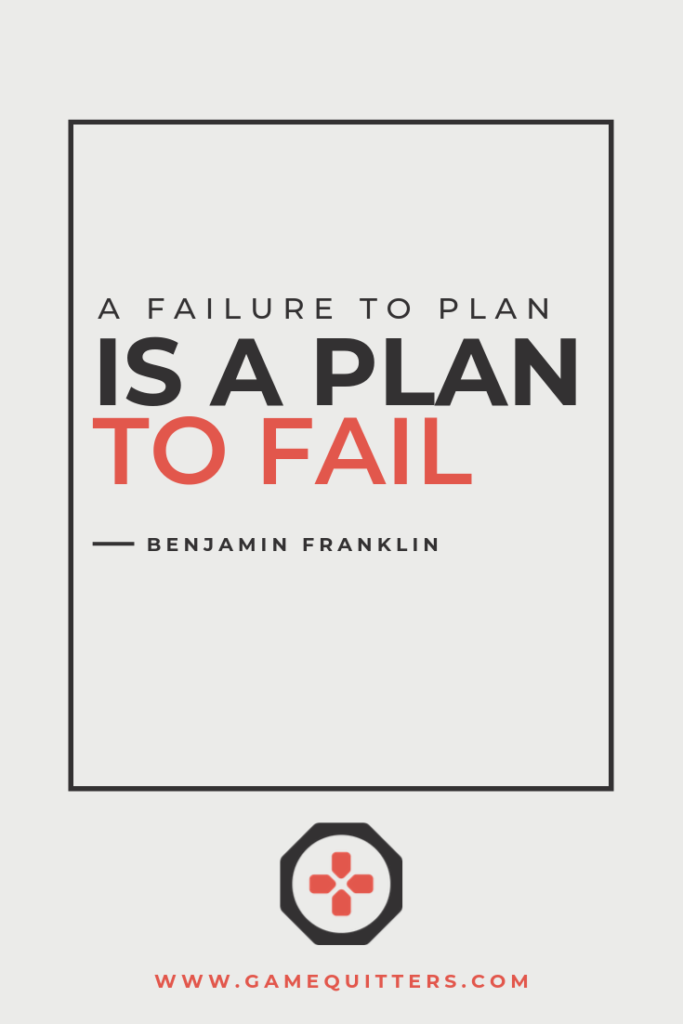Busy Work is Killing Your Productivity – Here’s How to Fix It
What is Busy Work?
Busy work is where you trick yourself into thinking you’re being productive.
But, in reality, you’re accomplishing meaningless tasks that aren’t getting you any closer to completing your goals.
Compare that to deep work.
Deep work consists of focused, intentional sessions of work on high-impact tasks.
For example, I’ve recently made a shift towards starting my own digital marketing business.
Every single day I’m having to face a decision about which tasks will bring actual results which tasks make me think I’m being productive.
Sure, I could fine-tune my website or send some tweets.
However, in reality, I’m going to get a lot more benefit if I cold-email 50 people and land one client.
That’s not to say some of the tasks that count as busywork aren’t necessary for a business.
But at the end of the day, you have to consider what the most optimal route is that you can take from where you are now to achieving your biggest goals.
If you’d rather listen to your articles than read them, don’t worry! You can check out the podcast episode all about escaping busy work and using deep work to transform your life.
Listen here!
How do I Know What Counts as Busy Work or Deep Work?
More simply, how do I know which tasks I should be avoiding?
In my case, I’ve got a list of goals of where I want to be three months from now.
It could be something like getting X amount of clients or making a certain amount of money.
Then I work out how to achieve those metrics.
I’ve worked backwards from back-to-front to create a step-by-step process to take me to those goals.
So what does that process look like?
It all starts with a master to-do list.
These are the end goals that you want to complete within 3 or 6 months.
Then ask yourself the question: “What are the exact steps I need to take to achieve these goals?”.
If you want to get 1,000 monthly visitors to your website, what does that look like?
It doesn’t need to be too detailed at this point, just come up with basic steps.
Are you going to post more content, optimize your website and social media, run promotions, paid advertising?
Then it’s just a case of breaking it down into shorter objectives or goals that you can achieve every day.
Following on with the traffic example, your daily task list could look something like this:

This took around 15 minutes to make, and I now have an exact task list that I can work on every single day.
A failure to plan is a plan to fail.
That being said, there is still a time and a place for ‘busy work’ in your daily routine.
You still need to do admin work, reply to e-mails, or send some Tweets. However, you should try and schedule time in your day where you’re usually at your least productive to complete these tasks.
Personally, I always hit a slump in the afternoon and am at my most productive in the morning and evening.
Therefore, around 3PM is the perfect time for me to indulge in some busy work and go and hit the gym.
Do what’s best for you though, and if you have no idea what works – try a bunch of things!
Keep testing until you discover your optimum working routine, then it’s just a matter of getting into a deep work state and smashing your goals every day.
Deep Work – A Quick-Start Guide
Deep work can mostly be summed up by one word: Intention.
When you work with a deep intention to be focused and wholly devoted to the task in hand, you’re going to find yourself in a state of deep work.
However, saying it’s about intention isn’t very helpful.

Fortunately for you, I’ve done the leg-work and read through the amazing book by Cal Newport devoted to this idea of deep work.
Have you ever heard someone tell you to work smart instead of hard?
Well once you start implementing deep work into your daily routine you’ll be the smartest damn worker around.
Just don’t expect it to work straight away. Think of it like a muscle.
The only way you can build it up is by repeatedly training and improving with consistency. You may only be able to hit 30 minutes to start with, but within a few months, you could easily hit 2 hours.
The 4 Key Principles of Deep Work
Single-Tasking
You’ll never get anything done if you’re trying to complete half a dozen tasks at once.
Stop jumping between multiple things, and stop thinking having 20 tabs open is productive.
Yeah, I’m looking at you.
You need to dedicate yourself to focus on one task and one task only.
No ifs, ands, or buts.
Remove Distractions
Have you ever had your phone next to you while working, only for the screen to light up?
“It’s just a harmless text message, I’ll reply real quick then get back to work.”
Then, before you know it, you get a notification from Twitter and after 20 minutes of scrolling, you accidentally close the app and realise what in the world you were doing.
My personal pre-work routine is:
- Make sure I have some water
- Noise-cancelling headphones with non-intrusive music
- Turn on Do Not Disturb on my e-mails and on Windows
- Put my phone on silent and zip it away in my bag
- Review my task list and then get to work
Your mileage may vary, but the most important thing is to make sure your phone is out of sight.
You need to get rid of any and all temptations.
Less Social Media
On the topic of smartphones, social media is another thing you need to clamp down on.
Not only is it an incredibly addicting time-sink, but you’re killing your attention span.
It’s already going to be hard enough for you to focus for extended periods of time, don’t make it any harder for yourself.
Try setting up app timers or locks to ensure you don’t spend more than 30-60 minutes a day on social media. Also, don’t use it at all after a certain time.
You need to wind down at the end of the day, and that involves getting yourself away from needless stimulants like your phone and your TV.
I like to set an “Amish Time” alarm on my phone to remind me when to settle down with a good book and start relaxing.

Creating Routines
We’ve got a great guide on how to build routines in our recent article on how to quit gaming in college.
But, in Deep Work, Newport outlines a few ways you can introduce the deep work philosophy into your routine without it being obtrusive.
These are as follows:
Monastic Philosophy. Cut out your distractions completely like you would if you were a monk.
Bimodal Philosophy. Alternating between a normal and monastic life. You may have a specific place you go for extended periods such as a remote cabin with limited infrastructure. Carl Jung was a famous example of someone who lived the Bimodal Philosophy.
Rhythmic Philosophy. My personal favourite. This is where you create a fixed time for deep work every day, or on specific days of the week. I like to work between 11am and 4pm, then from 7pm to 11pm.
Journalistic Philosophy. Cal’s favourite. You do deep work whenever you get a chance. Works especially well if you have a busy or unpredictable schedule e.g. journalist.
Lastly, I haven’t included it in the list but a good thing to do is put on a timer.
I like to put one for 90 minutes, and then focus the entirety of those 90 minutes working on a task.
Then you can see how much work you can actually get done, and compare it to how much time you think it takes you.
These are usually vastly different!
Now you’re ready to take on the world.
Well, not quite. But, you can certainly implement the principles in this article in order to create massive change very quickly.
It’s something I’ve used to great effect in my day-to-day life, and I’m sure you’ll get a huge amount of value too.
Don’t forget to check out the podcast episode on deep work here, and let us know what you think. Are you going to implement deep work into your routine? (I hope so)
As always, thanks for reading.
Until next time.
